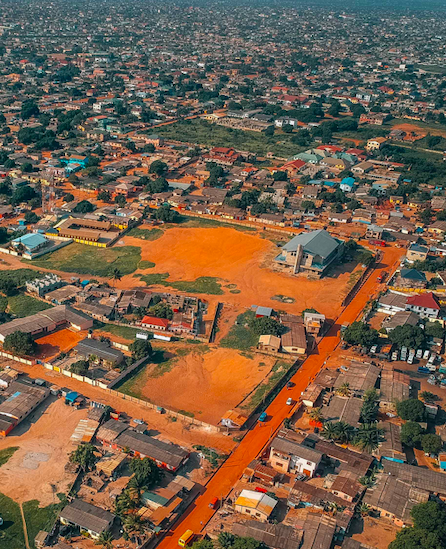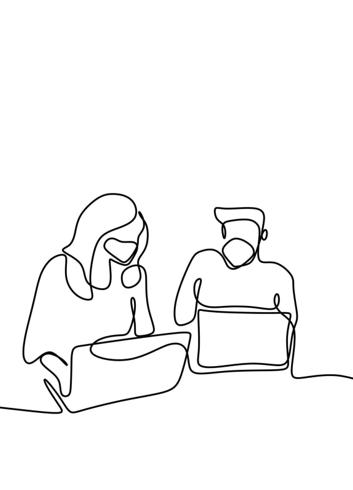
African Startups: which impact of the Covid-19 Pandemic? A lesson from Ghana
This article intends to share the story of how Clean Team Toilets, a Ghanaian startup with an ambitious social mission, has reacted to the Covid-19 pandemic. Its main purpose is to explain how the company has adapted to the pandemic whilst illustrating which are its strategic prospects and growth opportunities in difficult times. This will be an occasion of reflecting on African entrepreneurship and exploring the social and work dynamics of a country that has constantly been growing at a very fast rate during the last 20 years.
WHAT IS CLEAN TEAM GHANA?
Although being a relatively stable and growth projected economy, more than 60% of the population of Ghana in 2019 could still not have access to a proper toilet and had to rely on toilet bags or shared toilets.
Clean Team is a 100% Ghanaian startup which, since 2017, is developing a model of portable toilet that can be rented at a very low fare by the significantly large part of the population who does not dispose of decent sanitary services. The clients of Clean Team primarily are residents of the outskirts of large towns. However, considering the public and social interest of the startup, several investments concerning collaboration with schools and humanitarian associations have been recently developed by Clean Team, which has already partnered with UN Agencies and Ghanaian Ministries.
The startup, founded by the Ghanaian entrepreneur Kelvin Hughes, is based in Kumasi -the second largest Ghanaian town- and currently employs about 60 employees. It is active primarily in Kumasi, and has recently planned to expand its operational zone around Accra and in rural areas across the country.
HOW DID THE STARTUP REACTED TO THE COVID-19 OUTBREAK?
Covid19 has generated a dramatic worldwide crisis situation, directly and severely hitting also CleanTeam. Following the outbreak of Covid-19, the startup had at first to adapt to significant challenges, such as falling revenues and the reduction of the payments by its lower-income clients. Yet, the situation of international crisis also offered interesting opportunities of growth for this 100% African startup.
The world sanitary crisis will increase the focus of influential actors on the importance of hygienic norms and sanitary conditions. Actors such as the WHO will increase their capacities and promote new investments, and businesses like Clean Team may soon become crucial in the implementation of worldwide sanitary goals. Clean Team, thus, could exploit all its potential and make the most of this momentum, where sanitation is unusually at the center of the international debate. Explaining “how” will be the goal of the rest of this article.
WHICH STRATEGIES HAVE BEEN OR ARE BEING CONSIDERED BY CLEANTEAM TO REACT TO THE COVID19 CRISIS?
1 – BROADENING CLEAN-TEAM TARGET PUBLIC INCREASING ITS SCHOOL SERVICES
What? Clean Team Ghana has engaged in broadening its activities to educational institutions, in order to offer more visibility to the company’s activities and promote better hygiene behaviours from a young age.
Why? It seems necessary to take the most out of Covid-19 situation and the digitalization of the company to develop the business and expand the company’s customer-base. Covid-19 represented a big opportunity in this direction, as NGOs and international aid organizations have increased their attention in promoting hygiene norms, especially in densely populated areas and among the younger bands of the population. In this sense, Clean Team has become a precious ally of the international organizations’ community.
Furthermore, collaborating with schools allow to pursue long-term achievements at the national level. Education is a key asset for the development of good hygiene practices. Educating and sensitizing children to these issues ensures change in the long run.
How? Clean Team Ghana’s is considering organizing interventions in classes to promote better hygiene practices and present their sanitary services in a pedagogical way. For instance, the company may organise presentations sensitizing pupils to the sanitation theme. Presentations could be a first step for integrating in the school system, and by creating a good hygiene-education program combined with the provision of portable toilets -combining thus theory and practice-. In addition to this, such service may attract investments by NGOs and international organizations, which need more than ever similar initiatives.
2 – CREATING INVESTMENT OPPORTUNITIES THROUGH:
A – CORPORATE SOCIAL RESPONSIBILITIES (CSR)
What: The role of CSR is expected to become increasingly influential in the next few decades. Keeping on exploiting the flourishing of CSR is considered a priority for Clean Team.
Why: It is in big multinational corporations that most of the worldwide capital concentrates. Capitalization opportunities coming from who needs to show its commitment for a better world may significantly impact growth expectations of Clean Team.
How: The company has developed a significant network in this direction, managing to be funded by big multinational corporations such as Unilever. The relationship with foreign corporations may is a valuable investment for realities like Clean Team. Foundations of big companies are often their main funding source.
B – INTERNATIONAL ORGANIZATIONS (IOs) AND COVID-19 IMPACT
What: Covid19 significantly increased the number of resources dedicated to sanitation of governmental Cooperation and Development agencies, as well as international organizations.
Why: Organizations such as Clean Team become precious when hygienic norms are at the center of the debate. The post-pandemic legacy could transform Clean Team into a crucial ally for several NGOs and IOs.
How: Cooperating with international and governmental organizations requires long and difficult public affairs and networking initiatives. Now that fundraising and humanitarian events are scarce, funding opportunities provided by these actors may simply be initiated by constantly replying to their tenders and call for proposals.
C – TOURISM & THE FUTURE OF GHANA
What? Tourism is a long-term growth opportunity for Ghana. We have led a survey, which results demonstrated that young Ghanaians see tourism as the biggest growth opportunity for their country. Clean Team may become a promoter of tourism in Ghana, collaborating for the development of this sector.
Why? The business could contribute to the development of the country by setting the bases for creating a favourable environment to develop tourism in Ghana.
How? First, the technical skills of Clean Team in the field of sanitation and toilet instalment could be crucial for innovating in Ghana. Second, developing partnerships with leading touristic platforms. Third, by collaborating with structures not yet able to provide sanitary conditions satisfying the needs of their future customers. This concerns especially rural areas, which may interest foreigners but where there are very limited residential options for eventual tourism. Offering the beauty of wild Africa without renouncing to some basic hygienic standards could be a key for the development of the sector, indeed.
STRUGGLES: THE LESS BRIGHT SIDE:
Of course, the positive outlook discussed by this article must not hide a still significantly flawed reality. Talking with Clean Team employees and managers, the main problem areas that pose challenges to the start-up are evident. These primarily are power and network challenges – erratic internet, power issues –, which make working from home and digitalization significantly complex also in a relatively developed country such as Ghana. Furthermore, cultural factors constrain the capacity of Ghanaian entrepreneurship to react to the Covid-19 outbreak. Clean Team has the luck of being a young and dynamic reality, but several businesses remain very hierarchical and less change-oriented in the country. For example, hybrid working modes have proven to be successful within young startups, but this remains an exception. Less dynamic and more conventional realities are struggling to accept work from home even in large cities such as Kumasi and Accra, since most employers are not yet ready to accept the efficacy of home working.
CONCLUSION:
This article has tried to demonstrate that, also in difficult times, there are ample margins of growth for local startups backed by social purposes. The example of Clean Team illustrates how Africa has a great potential of young entrepreneurs and offers big opportunities for young innovators.
Covid-19 has been a challenge for every one of us. However, it must not be forgotten to explore the new potential opportunities offered by this crisis situation, and open new growth horizons. This is particularly true for businesses working in the social development field, which have now more than ever the possibility of being listened and finding the support they deserve.
Note about the author:
Lapo Roffredi graduated with a BSc Political Economy from King’s College London and currently undertakes a master in European Affairs at Sciences Po Paris. He is a sustainable transition analyst and passionate observer of the rural world, with a particular regard for African and coastal economies.





Leave a Reply